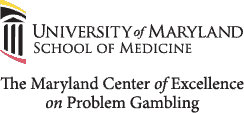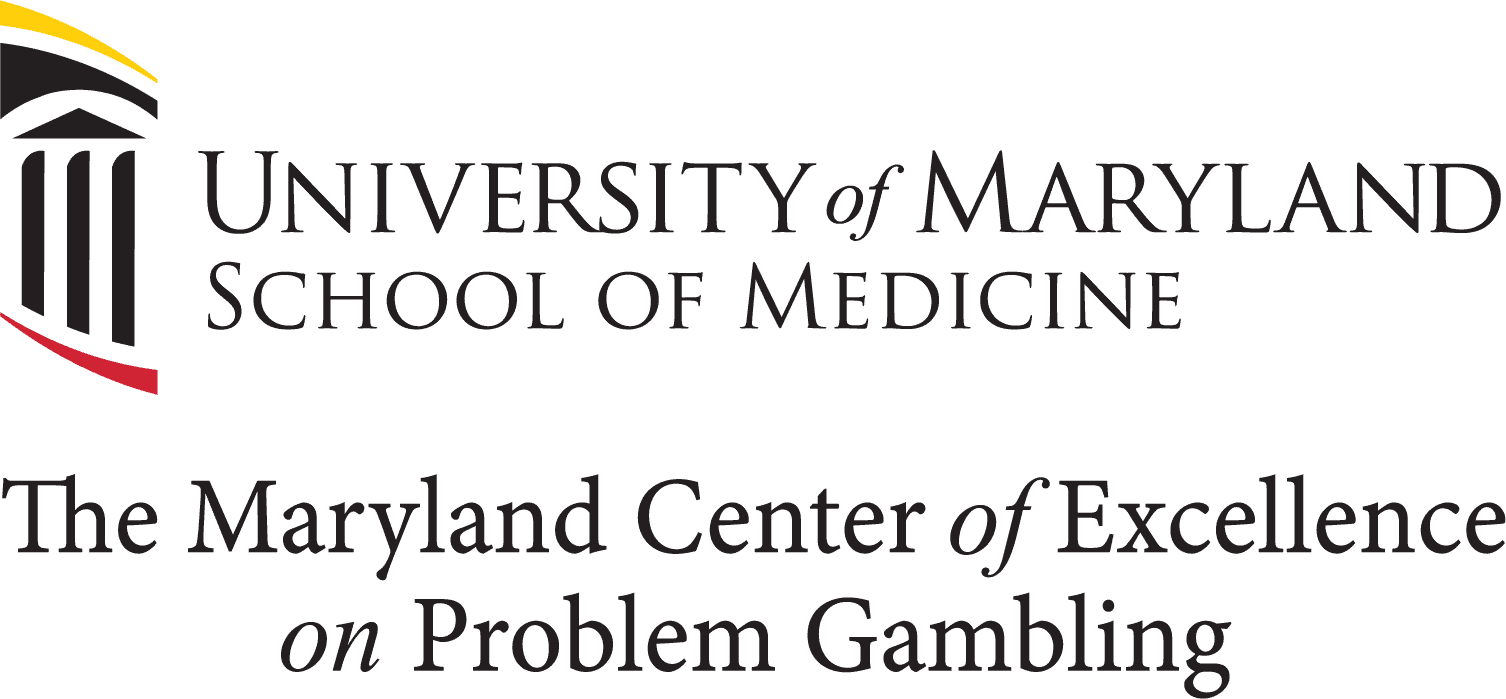In-Person Training Archives
Thursday, October 20, 2022
Gambling Disorder: Fundamentals for Healthcare Professionals
Presented By:
Kristen Beall LCSW-C, ICGC-I, CAC-AD
Deborah E Perry, MA, LCPC, NCC, MAC
Jim Nowlin, CPRS
Deborah E Perry, MA, LCPC, NCC, MAC
Jim Nowlin, CPRS
Summary:
Location: Chesapeake College, Health Professions and Athletics Center, 1000 College Cir, Room 127, Wye Mills, MD 21679
As gambling continues to become increasingly accessible throughout Maryland, rates of problematic gambling will also increase. It is essential for health and behavioral health care professionals to improve their competence in addressing and treating gambling related problems. The fundamentals for gambling disorder will provide a basic knowledge for identifying the at-risk gambler, screening tools, as well as brief interventions. This training is applicable and relevant for all helping professionals working with those in treatment for behavioral health disorders.
Location: Chesapeake College, Health Professions and Athletics Center, 1000 College Cir, Room 127, Wye Mills, MD 21679
As gambling continues to become increasingly accessible throughout Maryland, rates of problematic gambling will also increase. It is essential for health and behavioral health care professionals to improve their competence in addressing and treating gambling related problems. The fundamentals for gambling disorder will provide a basic knowledge for identifying the at-risk gambler, screening tools, as well as brief interventions. This training is applicable and relevant for all helping professionals working with those in treatment for behavioral health disorders.
Learning Objectives:
At the end of the training attendees should know and understand…
- The scope of problematic gambling and how to recognize when gambling is becoming problematic.
- Effective screening and assessment for gambling with tools for brief interventions using motivational interviewing.
- The DSM-5 diagnostic criteria for Gambling Disorder, specifiers, and severity.
- Role of SBIRT and the Social Determinants of Health (SDOH) related to gambling.
- The impact gambling behaviors can have on the family and the individual’s overall health.
Thursday, October 27, 2022
Gambling Disorder: Fundamentals for Healthcare Professionals
Presented By:
Kristen Beall LCSW-C, ICGC-I, CAC-AD
Raleigh L. Burch, Jr. NCC, LCPC, LCADC, MAC, SAP, ICGC-II, BACC
Carin Miller, CPRS
Raleigh L. Burch, Jr. NCC, LCPC, LCADC, MAC, SAP, ICGC-II, BACC
Carin Miller, CPRS
Summary:
Location: Ramada Plaza by Wyndham, 1718 Underpass Way, Banquet Hall, Hagerstown, MD 21740
As gambling continues to become increasingly accessible throughout Maryland, rates of problematic gambling will also increase. It is essential for health and behavioral health care professionals to improve their competence in addressing and treating gambling related problems. The fundamentals for gambling disorder will provide a basic knowledge for identifying the at-risk gambler, screening tools, as well as brief interventions. This training is applicable and relevant for all helping professionals working with those in treatment for behavioral health disorders.
Location: Ramada Plaza by Wyndham, 1718 Underpass Way, Banquet Hall, Hagerstown, MD 21740
As gambling continues to become increasingly accessible throughout Maryland, rates of problematic gambling will also increase. It is essential for health and behavioral health care professionals to improve their competence in addressing and treating gambling related problems. The fundamentals for gambling disorder will provide a basic knowledge for identifying the at-risk gambler, screening tools, as well as brief interventions. This training is applicable and relevant for all helping professionals working with those in treatment for behavioral health disorders.
Learning Objectives:
At the end of the training attendees should know and understand…
- The scope of problematic gambling and how to recognize when gambling is becoming problematic.
- Effective screening and assessment for gambling with tools for brief interventions using motivational interviewing.
- The DSM-5 diagnostic criteria for Gambling Disorder, specifiers, and severity.
- Role of SBIRT and the Social Determinants of Health (SDOH) related to gambling.
- The impact gambling behaviors can have on the family and the individual’s overall health.
Tuesday April 11, 2023
Neurobiology of Gambling Disorder, Risk Factors, Developmental Issues and Treatment Approaches from Pharmacotherapy to Mindfulness Based Interventions
Presented By:
Lori Rugle, PhD, ICGC-II, BACC, ICGD
Summary:
Location: The Hotel at Arundel Preserve – 7795 Arundel Mills Blvd, Hanover, MD 21076
This training will explore the biological and neurobiological factors that can contribute to the development of gambling disorder. Research findings on neuroimaging, epigenetic and behavioral approaches to understanding the risk for and impact of gambling on neurocognitive function will be reviewed. The clinical implications of these biological factors will be presented along with specific psychoeducational, pharmacotherapeutic and mindfulness-based treatments.
Location: The Hotel at Arundel Preserve – 7795 Arundel Mills Blvd, Hanover, MD 21076
This training will explore the biological and neurobiological factors that can contribute to the development of gambling disorder. Research findings on neuroimaging, epigenetic and behavioral approaches to understanding the risk for and impact of gambling on neurocognitive function will be reviewed. The clinical implications of these biological factors will be presented along with specific psychoeducational, pharmacotherapeutic and mindfulness-based treatments.
Learning Objectives:
- Participants will be able to identify key research findings neurocognitive risk factors for the development of a gambling disorder
- Participants will be able to describe at least 2 neurobiological, developmental factors that may contribute to risk for development of problematic gambling
- Participants will gain practice in describing how gambling effects the brain as part of client psychoeducation
- Participants will be able to describe at least 2 research findings regarding the psychopharmacological treatment of gambling disorder
- Participants will be able to describe at least 2 mindfulness-based strategies that can address neurocognitive issues in the treatment of gambling disorder.
Wednesday April 12, 2023
Becoming an Evidence-Based Therapist: Responding to the Challenge of Transference and Countertransference Reactions in Treating Gambling Disorder for Individuals and Families
Presented By:
Lori Rugle, PhD, ICGC-II, BACC, ICGD
Summary:
Location: The Hotel at Arundel Preserve – 7795 Arundel Mills Blvd, Hanover, MD 21076
Research has consistently identified therapeutic relationship factors are critical in obtaining optimal treatment outcomes. Becoming an evidence-based therapist requires cultivating such characteristics as empathy, compassion, non-judgmental Ness, and authenticity. This experiential training will explore how the traditional psychodynamic perspective of transference and countertransference reactions can be utilized to enhance the therapeutic relationship in working with individuals, couples, and families.
Location: The Hotel at Arundel Preserve – 7795 Arundel Mills Blvd, Hanover, MD 21076
Research has consistently identified therapeutic relationship factors are critical in obtaining optimal treatment outcomes. Becoming an evidence-based therapist requires cultivating such characteristics as empathy, compassion, non-judgmental Ness, and authenticity. This experiential training will explore how the traditional psychodynamic perspective of transference and countertransference reactions can be utilized to enhance the therapeutic relationship in working with individuals, couples, and families.
Learning Objectives:
- Participants will be able to identify evidence-based therapist characteristics that contribute to positive therapeutic outcome
- Participants will be able to define transference and countertransference
- Participant will describe specific transference and countertransference reactions common in working with gambling disorder
- Participants will be able to define how the perspective of transference and countertransference can be utilized in working with couples and families experiencing problem gambling.
- Participants will be given the opportunity to practice noticing and responding to transference and countertransference reactions.




